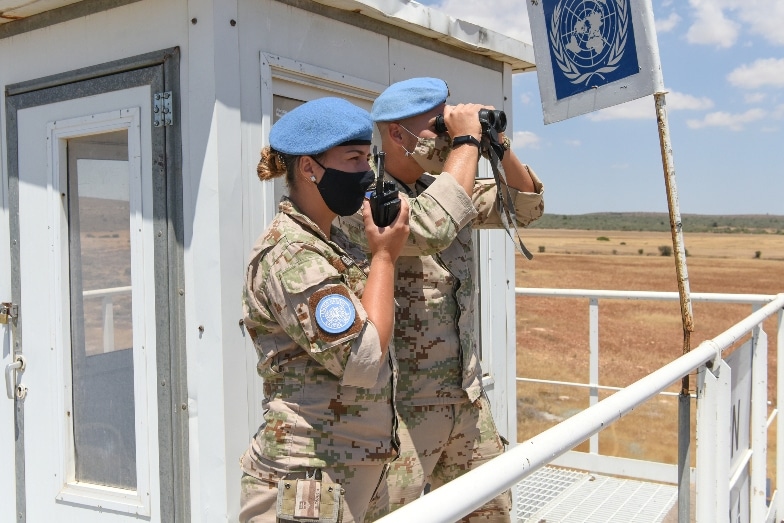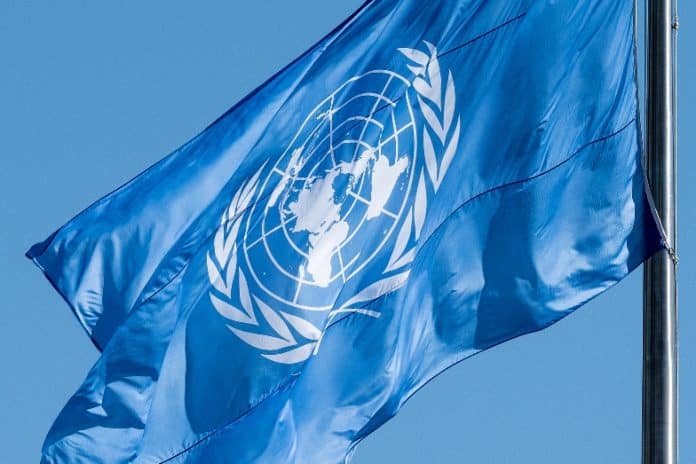The United Nations marks UN Day on 24th October, the anniversary of the entry into force in 1945 of the UN Charter.
The UN is known for its interventions across the globe. For example, it assists and protects 117 million people fleeing war, famine and persecution; it provides food and assistance to 160 million people in over 120 countries and territories, and it supplies vaccines to 45% of the world’s children.
The impact of the UN’s work is also felt in Europe. Here we outline 10 of the ways it makes a difference in Europe.
Work
The International Labour Organization has maintained and developed a system of 11 core international labour standards which outline fundamental principles to prevent exploitative working conditions. These include setting out the minimum age for employment; the definition of and the abolishment of forced labour; equal pay for men and women for equal work, and non-discrimination in the workforce. The standards also include allowing workers and employers to form and join organisations of their own choosing; protection against acts of anti-union discrimination; and a framework of occupational health and safety standards. Several countries in Europe have ratified all of the conventions, while many others have ratified at least 10. You can see the full list here.
Health
The World Health Organization (WHO) publishes recommendations for clinical practice or public health policy, such as the WHO Global air quality guidelines. With air pollution one of the greatest environmental risks to health, it offers guidance on thresholds and limits for key air pollutants that pose health risks. A further example is its recommendations for routine immunisations for all age groups, such as for diseases including rubella, measles, polio or COVID-19.
Migration
The International Organization for Migration (IOM) provides European Union institutions with policy advice and recommendations, including initiatives to address unethical practices in international recruitment and to adopt skills-based approaches for labour migration schemes.
Its Assisted Voluntary Return and Reintegration programme offers a free return option for migrants, including asylum seekers, who have chosen to return to their country of origin. They provide, for example, logistical help to prepare the journey as well as reintegration support, with 19,550 migrants assisted to return from the European Economic Area in 2022.
Human Rights
The UN monitors respect for human rights and warns countries of any shortcomings. One of its tools is the periodic review. Every UN member country, including European countries, undergoes this review on a regular basis.
The various committees of the Office of the United Nations High Commissioner for Human Rights (OHCHR) can also investigate and make recommendations on specific issues.
In May 2023, for example, France was examined by the UN. The Committee on the Elimination of Racial Discrimination (CERD) expressed concern about persistent racial discrimination and excessive use of force by the police, particularly after the death of Nahel, a young man killed by the police during a traffic stop. In July 2023, the UN Committee against Torture voiced concern about the attempted mass crossing at the Barrio Chino border between Spain and Morocco in June 2022 that caused at least 37 deaths and 200 injuries as a result of border control intervention from both countries.
Climate

The UN is at the forefront of the effort to save our planet. In 2015, 196 parties at the UN Climate Change Conference (COP21) agreed on the Paris Agreement, a legally binding international treaty on climate change. As part of the agreement, emissions need to be reduced by 45% by 2030 and reach net zero by 2050 to limit global warming to a maximum of 1.5°C.
The European Union (EU) has committed to achieving net zero greenhouse gas emissions by 2050 as part of its European Green Deal. The United Kingdom has also committed to reach net zero by 2050.
Iceland aims to achieve carbon neutrality before 2040. UN Deputy Secretary-General Amina Mohammed recently visited areas affected by the climate crisis in Iceland, including the country’s second largest – and fast-melting – glacier, Langjökull. With less than two months until the next Climate Change Conference (COP28), she called for action for those on the frontlines of climate change.
Refugees
The number of forcibly displaced and stateless people in Europe rose to 21.8 million by the end of 2022. The UN refugee agency, UNHCR, provides assistance across the region, such as through its protection and assistance of 4.3 million internally displaced persons within Ukraine.
It has helped mobilise communities in Malta against female genital mutilation, and assisted with organising social integration and information sessions for LGBTIQ+ refugees in France. In Ireland, it helped establish the first Refugee Advisory Board, which aims to ensure the voices of refugees are heard in policy decisions that affect them, building on a similar initiative in Belgium.
Poverty
The first of the 17 Sustainable Development Goals is to end poverty everywhere by 2030.
In 2021, the UN Special Rapporteur on extreme poverty and human rights, Olivier De Schutter, published a report following an official visit to the EU institutions. He recommended an EU-wide poverty strategy, including targets on poverty and on inequality. The EU began to take action immediately after his visit, including by increasing funding allocated to combatting child poverty, as well as a proposed directive on pay transparency to strengthen the requirement of equal pay for women and men.
Narcotics
UNODC, the United Nations Office on Drugs and Crime, has cooperated with the EU on the Western Balkans, including support for border control, anti-money laundering and counter-financing of terrorism capacity, and measuring and assessing organised crime. Upon request, it also supported EU Member States in the implementation of national anti-corruption plans.
Gender
The UN wants to see the world achieve gender equality by 2030. UN Women is a UN entity working for gender equality and the empowerment of women. Each year, including across Europe, it runs a 16 Days of Activism against Gender-Based Violence Campaign to galvanise action to end violence against women and girls.
It has several National Committees that support its mission, including several based in Europe. In the United Kingdom, for example, UN Women UK has published an open letter calling for safe spaces in music, with over 60% of workers having experienced sexual harassment in the music industry. In the Netherlands, where 80% to 85% of women and girls experience street harassment, 15 Dutch municipalities have signed up to the Safe Streets campaign run by UN Women Netherlands.
Peace

The UN currently has 12 peacekeeping operations across the globe, and UNFICYP, the United Nations Peacekeeping Force in Cyprus, is based in Nicosia. UNFICYP was originally set up by the Security Council in 1964 to prevent further fighting between the Greek Cypriot and Turkish Cypriot communities. After the hostilities of 1974, the Council has mandated the Force to perform certain additional functions. In the absence of a political settlement to the Cyprus problem, UNFICYP has remained on the island to supervise ceasefire lines, maintain a buffer zone, undertake humanitarian activities and support the good offices mission of the Secretary-General.

